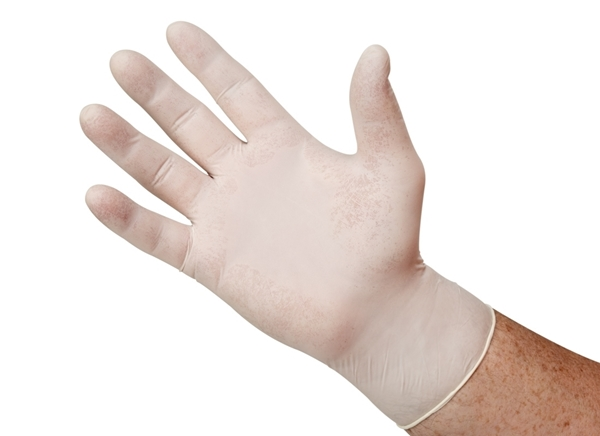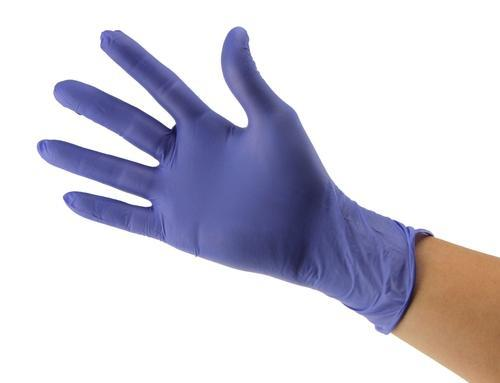The welfare, nursing, and care industries all rely heavily on the use of disposable gloves for a variety of tasks. When it comes to patient handling and general care, healthcare assistants and professionals rarely let more than a few hours pass before donning another pair of gloves. This is true for all aspects of patient care, from general purpose cleaning and food preparation to patient handling and general care. Plus, food gloves are one the best disposable gloves around.
However, it is possible to disregard the significance of gloves that are only worn once, which is especially likely when wearing gloves becomes part of a typical practice. Because of this, it is possible that newer and better solutions that are more suited to your specific company or department are never investigated. In addition to this, it is not always easy to determine which sort of glove would best meet your requirements while also complying with the rules and regulations that are already in place.
Because of this, we have compiled a list of five of the most common types of disposable gloves, as well as the activities that are most appropriate for each kind.
Powder Free Vinyl Gloves
Powder-free vinyl gloves are an ideal substitute for latex and are an extremely popular option for usage in nursing and residential care facilities due to their high level of tensile strength and superior resistance to the chemicals used in housekeeping. These powder-free disposable gloves are designed for low-hazard applications such as cleaning and food handling and processing since they do not include any allergenic proteins and do not contain any latex. Additionally, these gloves do not contain any latex. In addition, they are produced and examined in line with European Personal Protective Equipment Directive 89/686/EEC, and they are tested according to European Standards EN420, EN388, and EN374. Click here to read more about Disposable glove tips for food workers.

Nitrile Powder Free Gloves
Nitrile Powder Free Gloves are an excellent alternative to latex disposable gloves and are suitable for usage in a variety of settings, including the kitchen and general care at home. These disposable gloves Australia are ideal for businesses searching for protection that does not put employees or customers in danger of developing skin allergies since they do not contain any natural rubber latex, protein, or powder. These disposable gloves provide high resistance to oil and chemical penetration in addition to having robust beaded cuffs that are pleasant to wear and do not irritate the skin.

Nitrile is the name given to a synthetic rubber made of butadiene and acrylonitrile that is resistant to contact with a wide variety of chemicals, solvents, oils, and greases. Some examples of these types of substances include petroleum jelly, xylene, and liquid paraffin. Nitrile is referred to as a “nitrile” rubber. These Nitrile Powder Free Gloves adhere to 89/686/EEC, EN420, EN388, and EN374. They were designed particularly for operations that demand a disposable glove that is sturdy, of good quality, and reliable, and they were manufactured specifically for such processes.
Natural Rubber Without Any Powdered Latex
Natural Powder Free Latex Gloves are designed to offer the same precision fitting and sensitivity as powdered latex gloves but without the risk of irritation and powder contamination. These gloves conform to standards 89/686/EEC, EN420, EN388, and EN374, and they were specifically designed for applications with minimal risk. It is recommended that powder-free latex disposable gloves be used in most situations since they are more appropriate than powdered latex gloves.
This is because proteins found in natural rubber latex, which may trigger allergic reactions in certain individuals, can bind to the particles that make up powder. After the gloves are put on or removed, the particles may become airborne and can be ingested or come into contact with the skin.
This poses a potential health risk. When choosing our powder-free choice, not only do you considerably reduce the likelihood of this happening, but you also continue to enjoy all of the advantages and conveniences that are often associated with latex disposable gloves. Read the instructions provided by the HSE for further information about the selection of latex gloves.
Powdered Vinyl Gloves
Powdered Vinyl Gloves are incredibly durable and provide considerable resistance to common home chemicals, making them an excellent choice for regular cleaning jobs. Because they do not include any proteins that might cause allergic reactions and do not contain any latex, they are an excellent choice for the care home and nursing home industries. Powdered vinyl is a good substitute for latex and is ideal for use in a wide variety of basic cleaning applications.
The finely powdered inside makes them quite pleasant to wear, while the robust resilience of the outer assures that these gloves are up to a broad variety of light to medium cleaning jobs. Although these gloves may be worn in the kitchen, it is typically recommended that, because to the powdered lining that they contain, they are better suited for duties that do not involve a significant amount of food handling or constant hand washing. In addition, these gloves for single use are compliant with standards 89/686/EEC, EN455 1.2.3, EN388 and EN374.
Examination Gloves Made From Natural Materials
The Natural Vinyl Powder Free Examination Gloves provide the highest quality, are highly flexible, and give the much-needed reliability that is required for medical operations. These gloves were developed and made specifically for use in medical settings. These gloves do not contain latex, therefore there is no chance of skin allergies being triggered by their use. As a result, they are ideal for the tasks of patient care and patient inspection. These disposable examination gloves have been tested to ensure that they conform with the Medical Devices Directive 93/42/EEC as well as European Standards EN455 parts 1, 2, and 3, EN388 and EN374. As a result, they are suitable for use in all nursing, welfare, and care facilities.
Final thoughts
In a lot of areas of the nursing, care, and welfare industries, disposable gloves are essential. Healthcare assistants and professionals seldom let more than a few hours pass before pulling a pair of gloves over their hands once again, from routine cleaning and meal preparation to patient handling and general care. Visit to https://www.aps.anl.gov/Safety-and-Training/Safety/Reference-Material/Safety-Glove-Selection-Guide read about Safety Glove Selection Guide.
